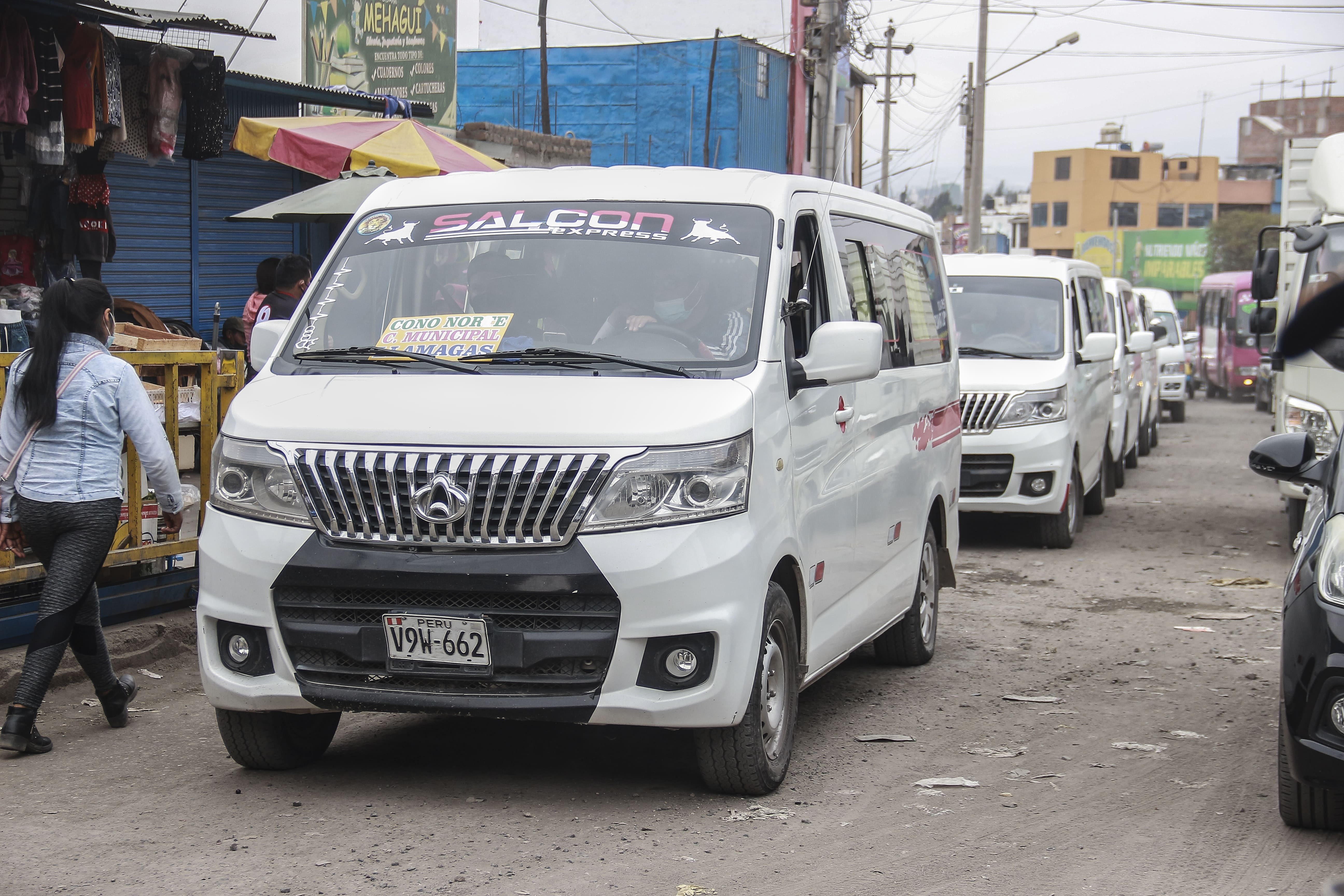
arguments. Concessionaire points out that, as informality reigns, the cost of the ticket will be governed by supply and demand. In addition, the municipality will not breach the contract.
The proposal of the mayor of Arequipa, Víctor Hugo Rivera Chávez, to give a temporary permit to other units such as vans, cars and lunch boxes for urban transport; has generated uncertainty among the concessionaires of the Integrated Transport System (SIT).
On Sunday, the representative of the AQP Masivo consortium, Freddy Chávez, warned that by providing temporary legality to smaller units such as M1 (cars, lunch boxes) and M2 (combis), the concessionary companies would evaluate the increase in the price of tickets.
Yesterday, Chávez expanded on his statement. He first emphasized that as dealers they cannot raise the ticket price unilaterally and arbitrarily. But, given Mayor Rivera’s proposal, that it would be a violation of contracts, what would happen is that chaos would reign in the city and the formal ones would cease to be, seeing that there are other vehicles on the routes that had concessions. “As there is informality, they will be governed by supply and demand and there will be a disbandment in the cost of tickets,” Chávez said.
Exclusivity contract
The former Transport manager of the Arequipa commune, Fátima del Carpio, recalled that clause 11 of the SIT concession contract specifies exclusivity to the concessionaires that have specific routes under their administration. For this reason, giving authorization to the informals could constitute a breach of contract.
But, what would happen if the municipality grants an authorization to informal routes that are not concessioned? Del Carpio explained that the routes or concession basins have a geographical criterion, under which they have an area of influence. The right thing, says the former official, is for the concessionaire to analyze whether it can cover the route where there is no service, but which is under its influence. If within a prudent period, the company says that it cannot do so, then the Arequipeña commune could only evaluate the possibility of granting authorizations.
The transportation system in Arequipa has been concessioned since 2018, which means that only concessionaires can operate. However, in practice, the so-called loncheritas cover the routes from the Northern Cone of the city to the Avelino Cáceres platform as normal. Del Carpio said that this is due to the lack of control.
Source: Larepublica
Alia is a professional author and journalist, working at 247 news agency. She writes on various topics from economy news to general interest pieces, providing readers with relevant and informative content. With years of experience, she brings a unique perspective and in-depth analysis to her work.












